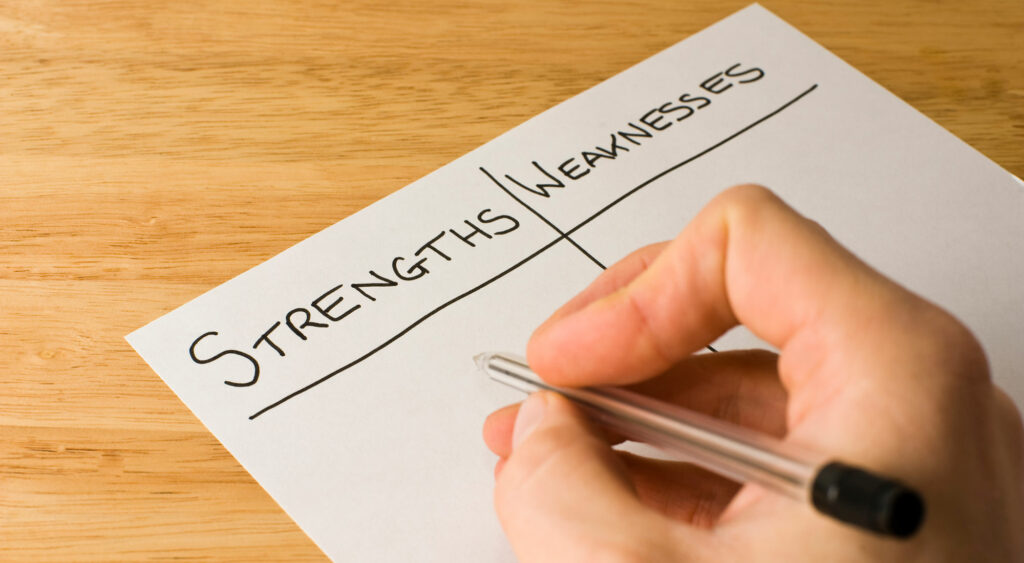By Bobby Shriver
Regardless of your religious beliefs, making space for a spiritual role in healing from eating disorders can generate a whole new, inspiring perspective.
Successes and setbacks are a part of every recovery journey. But when you see someone else making progress in ways that you aren’t, it can be easy to be down on yourself. This can be especially challenging if you’ve been trying to overcome an eating disorder or addiction and keep falling short. The setbacks can make you more susceptible to shame, guilt, and frustration. After all, you may feel like it’s all up to you to get better. Ultimately, these negative feelings can push you further into your eating disorder or addiction, leading to other mental health challenges.
This is where embracing spirituality as part of your recovery journey can make a positive difference and help you avoid relapse pitfalls. Regardless of your religious beliefs, making space for a spiritual role in healing from eating disorders can generate a whole new inspiring perspective, one that can give you a renewed sense of direction, accountability, and self-discovery in recovery.
An example of one of these inspiring perspectives associated with healing and spirituality is the concept of using our character strengths to learn the lessons that our weaknesses present to us. Being human means we are inherently imperfect. Being human also means that we are able to take advantage of opportunities to improve our quality of life. Meadows Senior Fellow Pia Mellody frequently reminds us, “Our strengths don’t make us better than, and our weaknesses don’t make us less than. We ought to be grateful for our strengths and learn from our weaknesses.”
Weaknesses in Recovery
We all have weaknesses: weaknesses of character that show up to remind us of our humanity and imperfection. For most people, weaknesses are a source of personal lack or toxic shame. What we perceive as weaknesses may keep us in a one-down position, or keep us from trying new endeavors, or keep us stuck in seemingly endless despair.
What if we begin to think of our weaknesses as an opportunity to learn important life lessons? Life is about learning, which is an act of spiritual creation. So instead of wallowing in the shame of our weaknesses (or attempting to hide from them), acknowledging our weaknesses and vulnerabilities can be a vital step for spiritual growth.
Recognizing our limitations graciously reminds us that we are far from perfect beings. For some, this may bring us closer to (and even help us derive strength from) the higher power or spiritual entity we follow. Yet for everyone, the acknowledgement of our weaknesses invites us to think about who we have the potential to become.
Our shortcomings are soul lessons that encourage us to grow in emotional, mental, ethical, and spiritual ways. As we strive to become more respectful, thoughtful, balanced, and moderate, we enter into an arena of greater awareness about ourselves and the world we live in. This not only helps with our spiritual recovery, but also our eating disorder or addiction recovery journey, too.
Strengths in Recovery
Thankfully, we all have personal strengths as well. Strengths are gifts. Those gifts can help us immensely in overcoming weaknesses, while also teaching us the lessons of life, and how to help ourselves and others in this world. Sadly, some of us struggle to believe we have any strengths at all. This is a cognitive distortion. Everyone possesses strengths that encourage and give us a sense of purpose. As a baby, you probably taught yourself to walk. That example of strength is called perseverance.

Sometimes we underestimate our personal strengths. For example, baking a perfect soufflé requires more abilities than just whipping together some eggs. Baking a soufflé requires a good amount of focus, a light touch, and diligence. Those same skills can be developed into strengths that can assist you in other more important areas of your life.
How do you discern what your strengths are? To start, make a list of your values. What ethics do you employ? List your interests: What are the best parts of those interests? What about your accomplishments in school, at work, with partnerships, with your family and friends, with hobbies, or sports participation? What do those positive thoughts tell you about your strengths?
Next, write down the behaviors and beliefs about yourself that hold you back. What would you like to stop doing? What character strengths do you want to develop? Think of your weaknesses (your lessons) as an opportunity to succeed. Anytime we complete even the smallest task, we feel a sense of accomplishment. Imagine the gratification of changing a negative pattern for good! You can do it.
After you have completed your list (by the way, the rule is that you must list as many — or more — strengths as weaknesses), begin to pair the gifts with the lessons. Choose one or two items you want to address first and create a reasonable timeline to make those changes.
Here is an example:
| Strengths (Gifts) | Weaknesses (Lessons) |
| Friendly | Isolative |
| Intelligent | Procrastinative |
| Mathematically Inclined | Stubborn |
| Artistic |
I choose to work on my stubbornness. I will use my artistic gifts to make a collage of what stubborn feels like to myself. Perhaps I will make a chart analysis or write a journal entry about what being stubborn has cost me. Then I will read articles about what stubbornness is really about. Next, I may call my recovery sponsor or other friends and ask for support when they notice I’m being stubborn or unreasonable. As I develop more awareness and substitute open-mindedness for my stubborn traits, I begin to feel empowered and happier.
What Is the Role of Spirituality in Recovery?
According to the Journal of Psychology & Clinical Psychiatry, there is no dispute that spirituality is both prevalent and important in treating and recovering from addiction. After all, an addiction or eating disorder can impact every aspect of your life physically, mentally, emotionally, and spiritually.
But how does your spiritual well-being really play a role in your recovery journey? Your spirituality, or the belief in a higher power outside of yourself, can actually benefit you in a variety of ways. For example, it can provide you with the following:
- A Sense of Purpose
Addiction can make you aimless. But spirituality allows you to be part of something bigger than yourself, giving you renewed hope and vision for your life.
- Support and Community
Spirituality connects you with others of the same faith who can provide encouragement, accountability, and a sense of belonging as you continue your recovery journey.
- Increased Gratitude and Mindfulness
instead of dwelling on your setbacks, spirituality can help you stay positive, open-minded, and grateful for the progress you’ve made.
- Resiliency
A belief in God, the universe, or some other being can help you put your troubles into perspective. With practices like meditation and prayer, you’re able to remain focused on your long-term recovery.
- Guidance
Any faiths provide a set of directions or morals to follow, giving you practical ways to stay sober-minded.
Find Holistic Recovery at The Meadows Ranch
As with all positive change, the challenge is to continue and to persevere as you strive for wellness. You can learn life lessons using your gifts to develop more strength while relying on something greater than yourself in the process. And if you need help with your eating disorder and other co-occurring conditions, we at The Meadows Ranch are here for you. Our holistic recovery approach combines education, resiliency, and self-regulation with an individualized plan of care based on your unique needs. If you’re ready to find long-term hope and healing physically, emotionally, mentally, and spiritually, contact us today.

